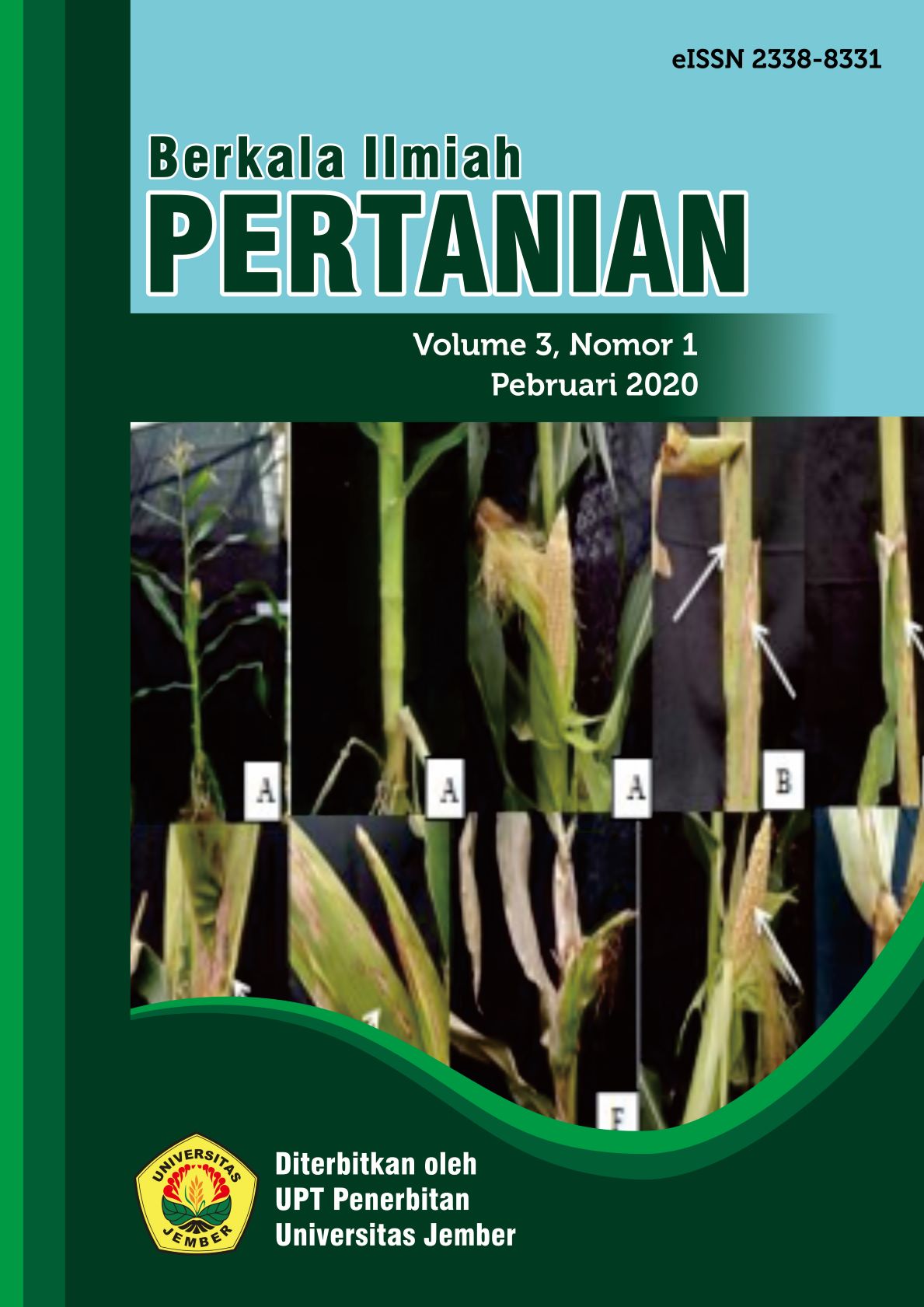PENGARUH TANAMAN LIDAH MERTUA (Sansevieria strifasciata) SEBAGAI FITOREMEDIATOR LOGAM BERAT TIMBAL (PB) TERHADAP PERTUMBUHAN DAN HASIL TANAMAN CIPLUKAN (Physalis angulata L.)
Keywords:
phytoremediation, lead (Pb), concentrationAbstract
Ciplukan (Physalis angulata L.) is one of the plants included in the eggplant family and has fruit with a wrapper that resembles green leaves. The main constraints in cultivating ciplukan plants include Pb metal pollution caused by industry, mining waste, households, agriculture (organic fertilizer, manure, pesticides), paint, coal burning reduction, deposition from the atmosphere and other activities. Efforts are needed to overcome the Pb pollution in ciplukan taaman cultivation using phytoremediation plants such as tongue-in-law (Sansevieria trifasciata). The experiment was conducted at the Antirogo Green House, Sumbersari District, Jember Regency. The study used a completely randomized design (CRD) of 1 factor and 5 replications with 4 Pb metal concentration treatments (0 ppm, 10 ppm, 20 ppm and 30 ppm). The results showed that administration of Pb concentration at a concentration of 10 ppm Pb did not inhibit growth in plant height, and root length of ciplukan plants. whereas the administration of concentrations of 0 ppm, 10 ppm, 20 ppm and 30 ppm did not affect the yield of ciplukan plants.
Keywords: phytoremediation, lead (Pb), concentration
Downloads
Downloads
Published
Issue
Section
License
Authors who publish with this journal agree to the following terms:
1.Authors retain copyright and grant the journal right of first publication with the work simultaneously licensed under a Creative Commons Attribution-NonCommercial 4.0 International License that allows others to share the work with an acknowledgement of the work's authorship and initial publication in this journal.
2.Authors are able to enter into separate, additional contractual arrangements for the non-exclusive distribution of the journal's published version of the work (e.g., post it to an institutional repository or publish it in a book), with an acknowledgement of its initial publication in this journal.
3.Authors are permitted and encouraged to post their work online (e.g., in institutional repositories or on their website) prior to and during the submission process, as it can lead to productive exchanges, as well as earlier and greater citation of published work (See The Effect of Open Access).




















